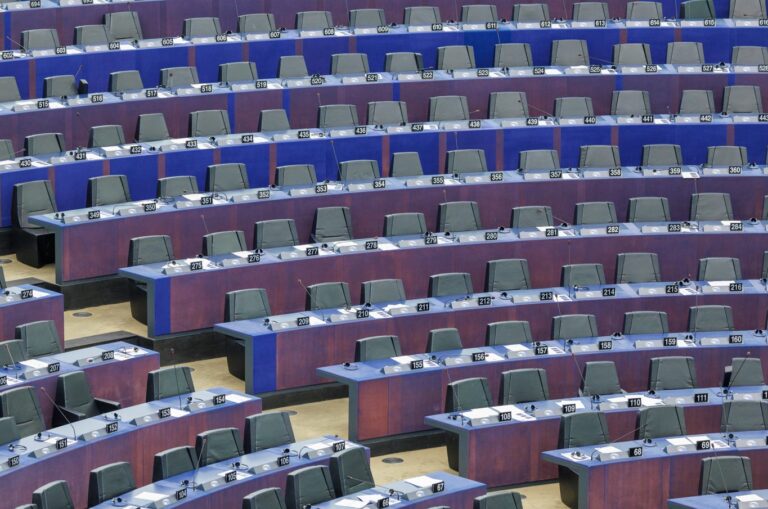Despite the fact that more women than ever are opting to serve in parliament all over the world, equality is still a long way off, and the current rate of advancement is far too sluggish.
Most parliaments still have a strong male majority, and some don’t even have any female members.
Table of Contents
The overview
Globally, there are more women than ever in positions of political decision-making, but gender parity is still a long way off, according to the IPU-UN Women Map of Women in Politics 2023 edition.
The Map displays the most recent rankings and geographical distribution of women in national parliaments and executive offices as of January 1, 2023. According to the data, there are now more women in positions of political leadership in both the administration and the parliament, although some areas still lag far behind.
Sima Bahous, executive director of UN Women, stated, “These statistics show that women continue to make up a minority of Heads of State and Government.
Governance, the representation of women in legislative assemblies stands as a beacon of progress, equity, and hope. But how are countries faring when it comes to gender equality in parliament? The answer is as varied as the nations themselves, but some bright spots emerge, signaling a shift towards a more balanced representation.
Countries making progress with women in parliament
Rwanda is in the lead with more than 60% of its seats held by women, making it the first nation to achieve a female-majority parliament in 2008. The tragic events of 1994 reshaped the nation’s social fabric, and women stepped in to rebuild the country.
In Nicaragua (52%), women outweigh men (53%), as well as in Cuba (53%). This astounding figure wasn’t just about numbers; it was about a nation recognizing the essential role of women in its reconstruction and future.
While Iceland, Costa Rica, Sweden, and South Africa are not far behind, only New Zealand, Mexico, and the United Arab Emirates have an equal gender distribution.
Before 2006, there were no women in the Federal National Council of the United Arab Emirates; however, a presidential decree in 2019 resulted in gender parity.
The Nordic countries also have consistently been at the forefront of promoting gender equality. Countries like Sweden, Finland, and Norway had near-parity or over 40% female representation in their national parliaments. Such representation hasn’t been accidental. These nations have long implemented policies, such as quotas, to ensure women are well-represented.
Other nations making progress
Along with Uzbekistan, Dominica, Chad, Mali, and Mali have made considerable strides in recent years.
After elections in June, a new women’s empowerment law in Sierra Leone, where women now hold 13% of seats, would guarantee that they occupy at least 30% of the parliament and cabinet.
Only a fifth of ministers in governments around the world are women, and they frequently have portfolios with an emphasis on social issues, the environment, family, or health.
Spain, Albania, Colombia, Rwanda, Canada, and France are among the nations that have appointed cabinets with a majority of women or equal numbers of men and women.
Read also: All the women leaders, premier and head of state currently in power worldwide
The countries doing badly
Yemen has just one woman in the upper house and none in the lower house.
For the first time since 2008, Vanuatu’s parliament also welcomed a single female legislator in 2017.
In more than 20 nations, including Nigeria (3.6%), Qatar (4.4%), and Iran (5.6%), women hold fewer than 10% of seats.
Although Sri Lanka had the first female prime minister in the world in 1960, the country has lagged with women making up only 5% of parliament during the past 25 years.
Despite the fact that Japan also had unprecedented numbers of women elected in 2022, they nonetheless only hold 10% of seats in the lower chamber, far less than other major nations.
The challenges ahead
Despite the progress, significant challenges remain. Even in countries with high female representation, women often face hurdles in accessing key leadership roles or influential committees. The quality, and not just the quantity, of representation, is vital.
One of the primary obstacles is deeply entrenched societal and cultural norms which often perceive politics as a male domain, questioning women’s capabilities and roles in the political arena. Such beliefs deter women from pursuing political careers or receiving the necessary community support.
Furthermore, this cultural bias can manifest in discriminatory practices within political parties, where women are being sidelined from significant positions or not given equal opportunities for candidacy, thus limiting their visibility and chances of election.
In addition to societal barriers, women politicians frequently encounter gender-based violence and harassment, both online and offline, aimed at intimidating them or discrediting their legitimacy. This not only poses a direct threat to their safety but also discourages many aspiring female politicians from stepping into the limelight.
Read also: Afghanistan, the Taliban government bans women from university
The journey to achieving gender parity in parliament worldwide is ongoing.
While many countries serve as beacons of progress, others have a long road ahead. The momentum, driven by both policy measures and grassroots movements, gives hope. As nations continue to recognize the intrinsic value of balanced representation, the future of global governance looks brighter, more inclusive, and genuinely representative.












